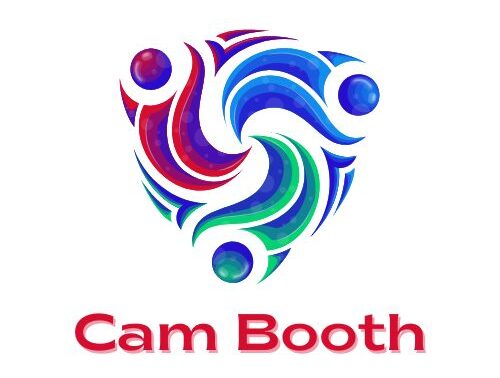When it comes to the world of B2B ecommerce, the role of keywords is crucial. Both a gateway and a guidepost, keywords hold the power to connect your business with decision-makers actively searching for your solutions. But effective keyword strategies for business-to-business ecommerce differ significantly from their B2C counterparts. Target buyers in B2B often search with intent, specificity, and a direct objective in mind, meaning a tailored approach to keyword planning is essential.
This post dives into everything you need to know about B2B ecommerce keywords. By the end, you’ll have a clear understanding of what these keywords are, why they matter, and how to optimize them to boost traffic, improve lead generation, and ultimately increase conversions.
What Are B2B Ecommerce Keywords?
B2B ecommerce keywords are specific terms and phrases that businesses use to optimize their websites and content for search engine results. These keywords aim to target other businesses rather than individual consumers. Unlike B2C searches that often focus on personal preferences (“best sneakers under $100”), B2B ecommerce keywords cater to professional decision-makers looking for practical solutions (“bulk custom packaging solutions”).
These keywords usually indicate high purchase intent or are informational, such as searches for industry-specific products, services, or solutions to problems.
Long-Tail Keywords vs. Short-Tail Keywords in B2B
While keywords can range from simple, generic phrases to detailed, specific queries, a solid B2B strategy hinges on effective long-tail keyword use. Here’s the difference:
- Short-Tail Keywords are broad, high-competition terms. Example: “office supplies.”
- Long-Tail Keywords are more detailed phrases with lower search volume but higher intent. Example: “wholesale office supplies New York.”
For B2B ecommerce, long-tail keywords typically deliver better results, as they reflect the precision of business searches. Enterprises and key decision-makers are often looking for niche solutions rather than general options, making specific terms more valuable.
Why Keywords Matter in B2B Ecommerce
Keywords are the foundation of effective B2B ecommerce. Here’s why they’re critical:
- Enhanced Discoverability
Properly optimized content with the right keywords ensures that your business appears in search results for your ideal audience. Whether a company is searching for “enterprise software solutions” or “custom packaging for small businesses,” being visible for these queries significantly increases the likelihood of engagement.
- Higher Quality Leads
When your target audience uses the precise keywords, you optimize for, they’re more likely to click on your site. These searchers are further down the purchase funnel, creating better leads with a much higher chance of conversion.
- Market Positioning
Using the right B2B ecommerce keywords helps position your brand as an authority in the industry. Ranking well for relevant search terms in niche markets significantly strengthens credibility and trust.
Top Categories of B2B Ecommerce Keywords
Effective B2B keyword targeting requires a combination of keyword types. Here are the main categories to focus on:
1. Product-Specific Keywords
These direct terms align with the products or services you sell. They focus on what your potential customers are looking for. Example phrases include:
- “Wholesale industrial parts”
- “Cloud-based payroll software”
- “Bulk order fresh produce”
2. Industry-Specific Keywords
These keywords are tailored to the industry you serve. They often incorporate terms unique to the sector. Examples might include:
- “Pharmaceutical eprocurement platforms”
- “eco-friendly B2B packaging suppliers”
3. Transactional Keywords
These high-intent phrases are used by searchers ready to purchase or inquire. These often include terms like:
- “Buy,” “order,” or “price” (e.g., “buy custom signage wholesale”).
4. Informational Keywords
Searches for answers or deeper understanding of a relevant topic fall into this category. Often starting with “how to” or “best practices,” examples include:
- “How to integrate CRM with ecommerce platform”
- “Best inventory management software for small businesses”
5. Local Keywords
Many B2B buyers need suppliers or collaborators at a local level. Optimizing for location-based search terms ensures your visibility in these searches:
- “Custom printing services Los Angeles”
- “Industrial suppliers near Boston”
How to Develop B2B Ecommerce Keywords
Crafting an effective keyword strategy requires research, refinement, and a solid connection to your target audience. Here’s a step-by-step guide:
Step 1: Identify Buyer Personas
Who are the businesses you’re targeting? Create detailed buyer personas by understanding the following:
- Their role in the company (e.g., procurement manager, business owner)
- Their pain points
- What solutions they’re searching for
Understanding your buyer personas helps you anticipate the words they’re likely to use when searching for solutions.
Step 2: Leverage Keyword Research Tools
Utilize tools like:
- Google Keyword Planner (for identifying search volumes and trends)
- Ahrefs or SEMrush (for competitive analysis and keyword suggestions)
- AnswerThePublic (for long-tail keyword inspiration)
Step 3: Prioritize Buyer Intent
Focus on keywords that reflect clear business intentions:
- Navigational Keywords (e.g., branded terms)
- Transactional Keywords (e.g., “get a quote now”)
- Commercial Keywords (e.g., “best supplier in X industry”)
Step 4: Optimize Content
Ensure strategic placement of your keywords within:
- Headlines and subheadings
- URLs
- Meta titles and descriptions
- Product descriptions and blog posts
- Alt-text for images
Remember to avoid keyword stuffing, as this can negatively impact search engine rankings.
Step 5: Monitor and Refine
Regularly monitor keyword performance using analytics tools. Evaluate which phrases deliver high-quality traffic and refine your strategy accordingly.
Examples of B2B Ecommerce Keyword Use
Here are practical examples where effective keyword use in B2B ecommerce campaigns can deliver results:
- “Warehouse Management Software”— A cloud-hosting service could use this term to optimize blog posts, case studies, and product descriptions.
- “Custom Packaging for Small Businesses”— A packaging supplier could use this to run AdWords campaigns targeting small-business owners.
- “Best SaaS Marketing Platform”— A SaaS company could rank for this through whitepapers or comparison guides on B2B platforms.
Elevate Your B2B Strategy with the Right Keywords
Smart keyword strategy is not just an optional component of B2B ecommerce; it’s essential for success. By leveraging the precise needs of business-buyers and optimizing for high-intent, highly specific terms, you can drive targeted traffic, increase leads, and position your company as a trusted name in your industry.
Start optimizing your ecommerce platform for success today. For tools to refine your B2B content strategy, consider exploring advanced keyword solutions to streamline your efforts.
FAQs
1. Why is keyword strategy important for B2B ecommerce?
A strong keyword strategy helps ensure your content is visible to the right audience at the right time. By targeting specific, high-intent keywords, you can attract qualified leads, improve search engine rankings, and enhance your overall ROI.
2. How do I identify high-intent keywords?
High-intent keywords can be identified through thorough research using tools like Google Keyword Planner or SEMrush. Focus on terms that align with your audience’s needs, commonly include action words, or indicate purchase intent (e.g., “buy,” “compare,” “solutions for”).
3. How often should I update my keyword strategy?
Regularly revisiting your keyword strategy, such as every quarter or after significant market changes, keeps your content fresh and competitive. Monitor trends and performance metrics to ensure your strategy remains aligned with your audience’s evolving needs.
4. Can advanced keyword solutions really streamline my efforts?
Yes, advanced keyword tools provide valuable insights, such as competitor analyses, search volume trends, and ranking opportunities. These solutions help you save time and make more informed decisions about where to focus your optimization efforts.







